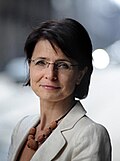| ||||||||||||||||||||||||||||||||||||||||||||||||||||||||||||||||||||||||||||||||||
All 21 Belgian seats to the European Parliament | ||||||||||||||||||||||||||||||||||||||||||||||||||||||||||||||||||||||||||||||||||
|---|---|---|---|---|---|---|---|---|---|---|---|---|---|---|---|---|---|---|---|---|---|---|---|---|---|---|---|---|---|---|---|---|---|---|---|---|---|---|---|---|---|---|---|---|---|---|---|---|---|---|---|---|---|---|---|---|---|---|---|---|---|---|---|---|---|---|---|---|---|---|---|---|---|---|---|---|---|---|---|---|---|---|
| Turnout | 89.64% [1] | |||||||||||||||||||||||||||||||||||||||||||||||||||||||||||||||||||||||||||||||||
| ||||||||||||||||||||||||||||||||||||||||||||||||||||||||||||||||||||||||||||||||||
An election was held on 25 May 2014 in the three Belgian constituencies (the Dutch-speaking electoral college, the French-speaking electoral college and the German-speaking electoral college) to elect the Belgian delegation to the European Parliament. This election, part of the 2014 European Parliament election, was held on the same day alongside the Belgian federal election and the Belgian regional elections.
Contents
- Opinion polling
- Opinion polling for the Dutch electoral college
- Candidates
- Main candidates
- Results
- References
21 Belgium MEPs were elected: 12 of them are Dutch-speaking, 8 of them are French-speaking and 1 of them is German-speaking. In the arrondissement of Brussels-Capital and six municipalities with language facilities, voters can choose whether to vote for the Dutch-speaking or for the French-speaking electoral college.




